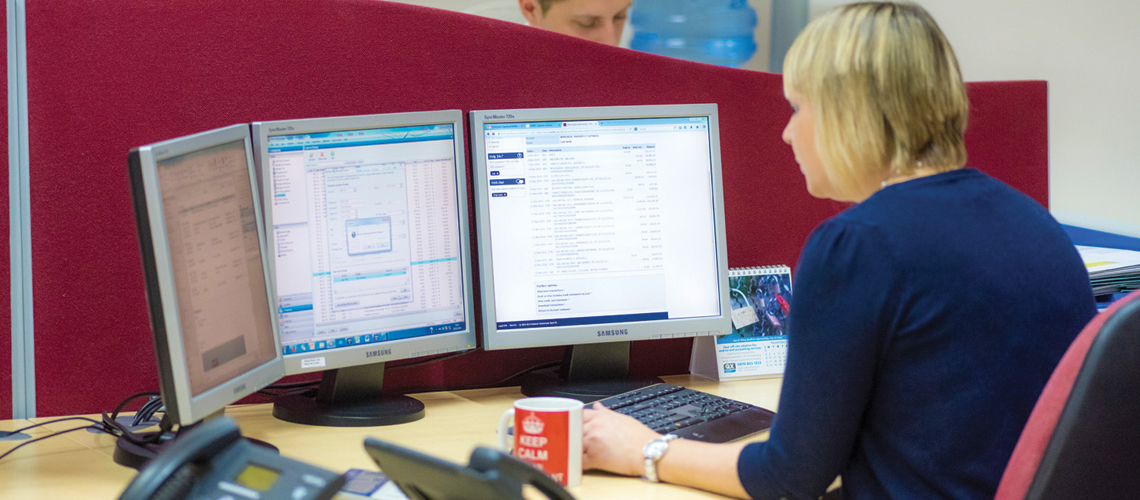Second lockdown update 03/11/20: The new Job Support Scheme (JSS), which was the government’s replacement wage support scheme, had been set to launch on 1 November, with the government publishing 11 detailed guidance notes on the evening of 30 October to help employers in administering the same. This scheme has, however, now been postponed until the extended CJRS ends.
This is based on guidance we have available as at 26/10/2020 – further guidance and full details of the calculations are expected to be issued by the end of October for when the scheme commences on 1st November. As soon as we know more we will issue an update.
There will be 2 different types of JSS depending on whether you need to reduce hours (JSS Open) or are legally required to close your premises as a direct result of coronavirus restrictions set by one or more of the four governments of the UK (JSS Closed).
Read GOV.UK documentation on the Job Support Scheme
JSS Open
The employee will need to work a minimum of 20% of their usual hours and the employer will continue to pay them as normal for the hours worked.
Alongside this, the employee will receive 66.67% of their normal pay for the hours not worked – this will be made up of contributions from the employer and from the government.
The employer will pay 5% of reference salary for the hours not worked (based on usual hours calculations), up to a maximum of £125 per month, with the discretion to pay more than this if they wish.
The government will pay the remainder of 61.67%, of reference salary for the hours not worked, up to a maximum of £1,541.75 per month.
This will ensure employees continue to receive at least 73% of their normal wages, where they earn £3,125 a month or less.
JSS Closed
Each employee who cannot work due to these restrictions will receive two thirds of their normal pay, paid by their employer and fully funded by the government, to a maximum of £2,083.33 per month, although their employer has discretion to pay more than this if they wish.
Employers are eligible to claim JSS Closed if their business premises at one or more locations has been legally required to close as a direct result of coronavirus restrictions set by one or more of the four governments of the UK. This includes premises restricted to delivery or collection only services from their premises and those restricted to provision of food and/ or drink outdoors.
Businesses premises required to close by local public health authorities as a result of specific workplace outbreaks are not eligible for this scheme
Eligible employers will be able to claim the JSS Closed grant for employees:
- whose primary work place is at the premises that have been legally required to close as a direct result of coronavirus restrictions set by one or more of the four governments of the UK
- that the employer has instructed to and who cease work for a minimum period of at least 7 consecutive calendar days
This is not a complete list of all the conditions for eligibility for JSS Closed and further guidance will be published by the end of October.
Important Information for both schemes
- Although the scheme starts on 1st November 2020 Employers will be able to claim from 8 December, covering salary for pay periods ending and paid in November. Subsequent months will follow a similar pattern, with the final claims for April being made from early May.
If grant payments are made in 6 working days, like the current scheme, employers will need to cover the full cost of the wages for monthly employees for a period of 2-3 weeks before getting the grant income – for more frequently paid employees this will be much longer.
- Neither the employer nor the employee needs to have benefitted from the Coronavirus Job Retention Scheme to be eligible for the Job Support Scheme.
- Only employees who were on payroll and a valid RTI (Real Time Information) submission between 6th April 2019 and 23rd September 2020 will be eligible – if you employed someone who was paid for the first time in September and the RTI submissions were made after 23rd September – they will NOT be eligible for JSS Open and JSS Closed.
- Employers can only claim for employees that were in their employment on 23 September 2020. If employees ceased employment after 23 of September 2020 and were subsequently rehired, then employers can claim for them
- Employees can be on any type of contract, including zero hours or temporary contracts.
- Employees will be able to undertake training voluntarily in non-working hours. Where time spent on training attracts a minimum wage entitlement in excess of the grant payment, employers will need to pay the additional wages.
- Employers cannot claim for an employee who has been made redundant or is serving a contractual or statutory notice period during the claim period.
- The Job Support Scheme grant will not cover National Insurance contributions (NICs) or pension contributions. These contributions remain payable by the employer.
- Like the CJRS – Employers must deduct and pay to HMRC income tax and employee NICs on the full amount that is paid to the employee, including any amounts subsequently met by a scheme grant.
- Employers must have paid the full amount claimed for an employee’s wages to the employee before each claim is made. They should also pay the associated employee tax and employee and employer National Insurance contributions to HMRC, even if the company is in administration.
- Employees will be able to check if their employer has made a Job Support Scheme claim relating to them via their Personal Tax Account.
Reference Salary
The reference salary amounts are the same as those used for the CJRS – however the reference period has changed.
Claims should commence from the later of the date that the employee starts working reduced hours or the date when working reduced hours is confirmed in writing, not when the decision is made. Claim periods can start from 1 November 2020 onwards. Claims are subject to a maximum reference salary of £3,125 per calendar month.
Reference salary for employees with fixed pay
For employees who are paid a fixed salary, the Reference Salary is the greater of:
- the wages payable to the employee in the last pay period ending on or before 23 September 2020
- the wages payable to the employee in the last pay period ending on or before 19 March 2020, this may be the same salary calculated under the CJRS scheme
Reference salary for employees with variable pay
For employees whose pay is variable the Reference Salary is the greater of:
- the wages earned in the same calendar period in the tax year 2019 to 2020
- the average wages payable in the tax year 2019 to 2020
- the average wages payable from 1 February 2020 (or the employee’s start date if later) until 23 September 2020
So we will definitely have some more calculations to undertake for the JSS.
Usual Hours
Employees who work fixed hours
For employees contracted for a fixed number of hours and whose pay does not vary according to the number of hours they work, usual hours are calculated based upon the greater of:
- the hours that the employee was contracted for at the end of the last full pay period ending on or before 23 September 2020
- the hours that the employee was contracted for at the end of the last full pay period ending on or before 19 March 2020, this may be the same number of hours calculated under the Coronavirus Job Retention scheme (NB. if employees moved to part time working, this may be varied full details will be included in forthcoming Guidance)
This should include hours paid as annual leave and statutory leave.
Employees who work variable hours
The variable hours calculation applies if either:
- the employee is not contracted to a fixed number of hours
- the employee’s pay depends on the number of hours they work
For employees whose number of hours varies and/or whose pay depends on the number of hours they work, the number of usual hours is calculated based on the higher of:
- the number of hours worked in the same calendar period in the tax year 2019 to 2020
- the average number of hours worked in the tax year 2019 to 2020
- the average number of hours worked from 1 February 2020 (or the employee’s start date if later) until 23 September 2020
This should include hours paid as annual leave and statutory leave.
The calculation of usual hours is not and cannot be altered if the employee is expecting to work more or fewer hours than this in the future.
Links to examples:
Calculation example 1: fixed hours and fixed salary employee
Calculation example 2: employee with variable hours and variable pay
Temporary working agreements
To be eligible for the grant, employers must have reached written agreement with their employee that they have been offered either a temporary working agreement (JSS Open) or that they have been instructed to and agree to stop working for a minimum of 7 consecutive calendar days (JSS Closed).
The agreement must be available for view by HMRC on request.
This temporary working agreement must cover at least seven consecutive days.
The employee must agree to the new arrangement.
HMRC will publish further guidance on what to include in the written agreement by the end of October.
Any previous letter issued under the Coronavirus Job Retention Scheme will NOT be relevant and new letters much be issued to all employees for whom you want to claim under the Job Support Scheme.




















